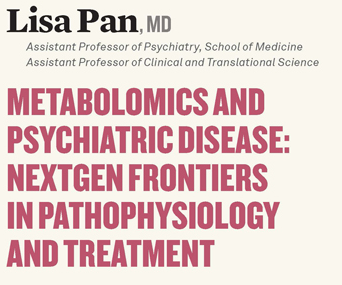
Topic Overview:
Pan recently garnered recognition for research that identified metabolic abnormalities in patients with treatment-refractory depression and prescribed drug therapy to correct the metabolic deficiency. Her work suggests that identifying and treating metabolic deficiencies in patients with treatment-resistant depression can improve symptoms and, in some cases, lead to remission. Major depressive disorder, also referred to simply as depression, affects nearly 15 million American adults and is one of the most common mental disorders. Depression also is the cause of more than two-thirds of suicides that occur annually. At least 15 percent of patients don’t find relief from conventional treatments, such as antidepressant medications and psychotherapy.
Pan will discuss her ongoing case-control trial looking for metabolic abnormalities in adolescents and young adults with treatment-refractory depression. Although the specific metabolites involved have differed among patients, researchers have found that at least 60 percent of the patients had a deficiency in neurotransmitter metabolism, compared with none of the controls. Pan will also discuss ongoing experiments that are aimed at discovering the underlying genetic and metabolic pathophysiology of the findings to allow for better diagnosis and management of the identified metabolic disorders.



























